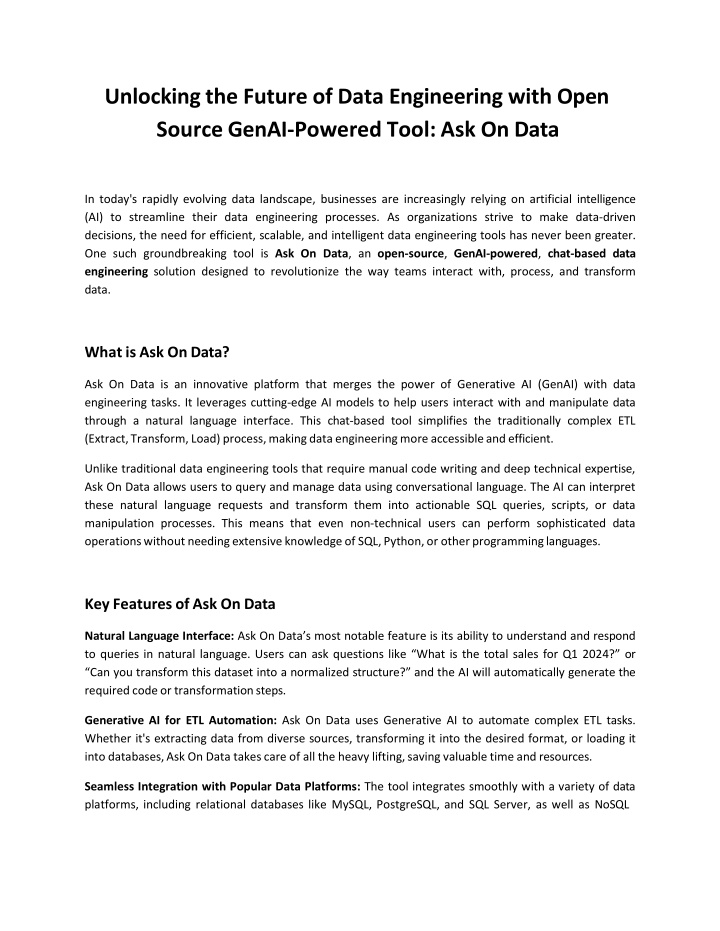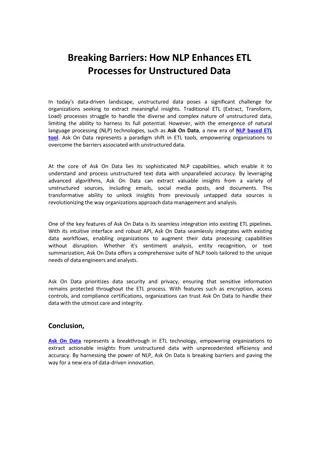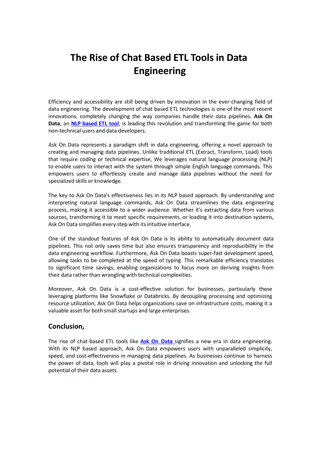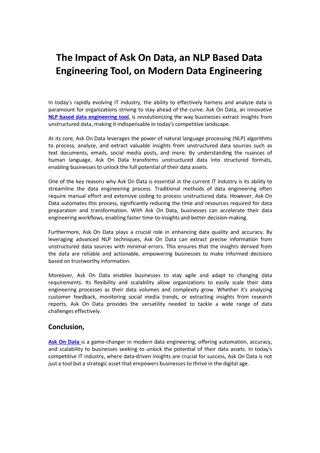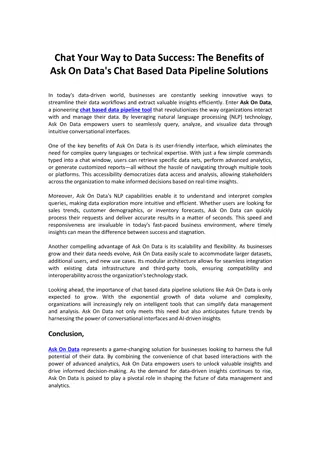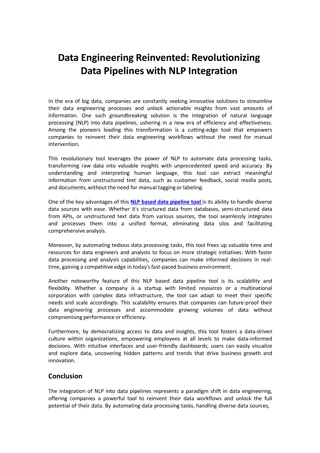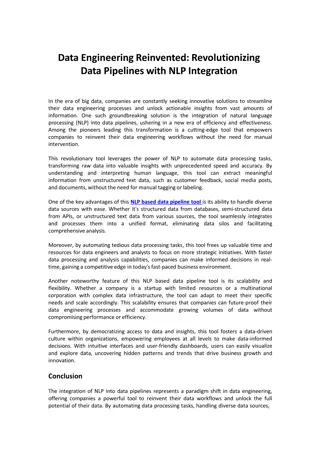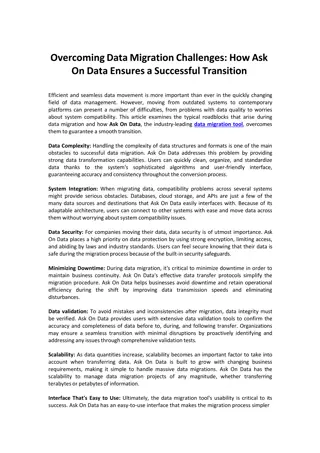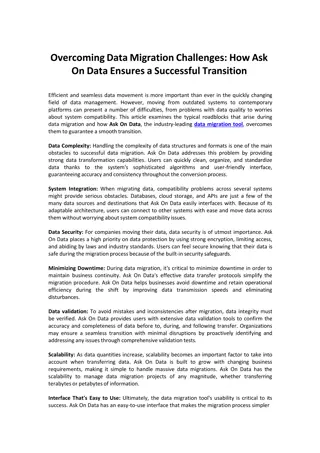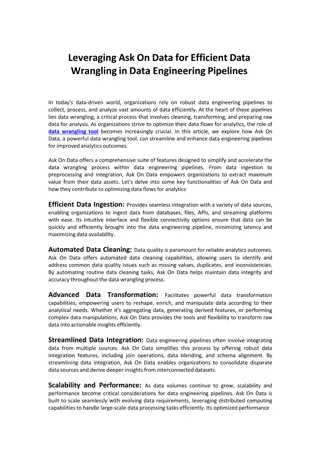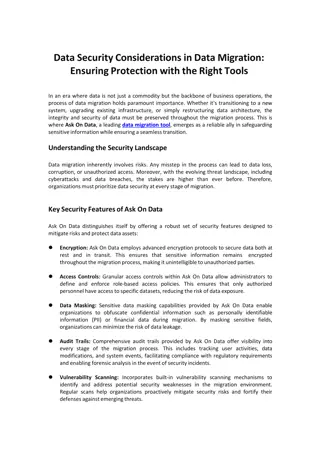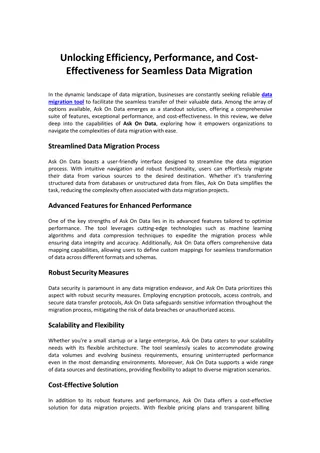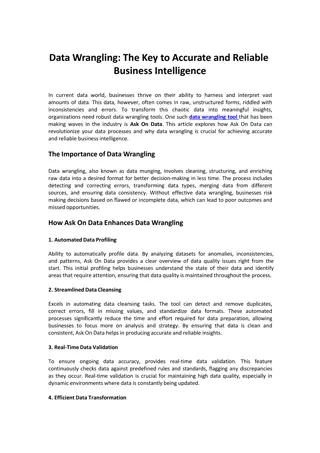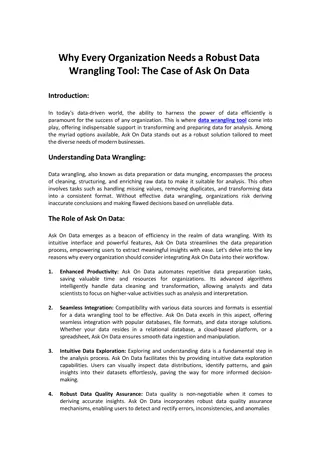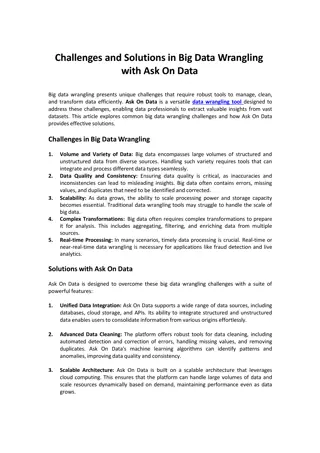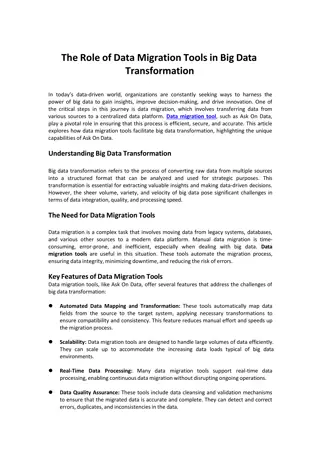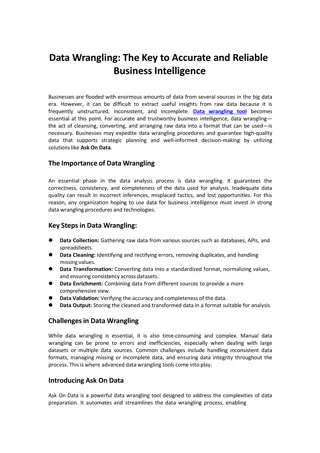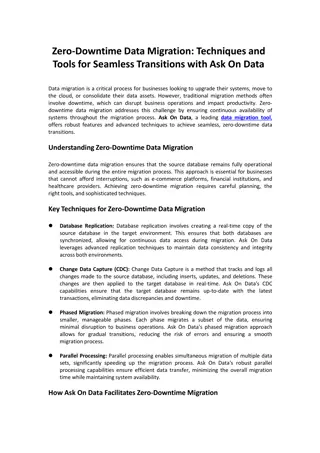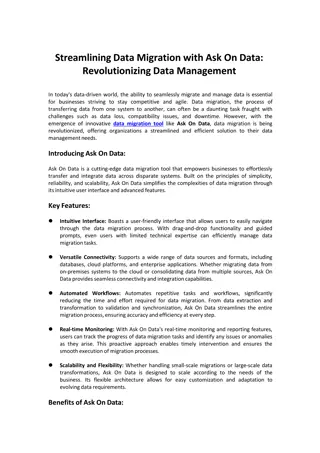Ask On Data
As organizations strive to make data-driven decisions, the need for efficient, scalable, and intelligent data engineering tools has never been greater. One such groundbreaking tool is Ask On Data, an open-source, GenAI-powered, chat-based data engine
Download Presentation

Please find below an Image/Link to download the presentation.
The content on the website is provided AS IS for your information and personal use only. It may not be sold, licensed, or shared on other websites without obtaining consent from the author.If you encounter any issues during the download, it is possible that the publisher has removed the file from their server.
You are allowed to download the files provided on this website for personal or commercial use, subject to the condition that they are used lawfully. All files are the property of their respective owners.
The content on the website is provided AS IS for your information and personal use only. It may not be sold, licensed, or shared on other websites without obtaining consent from the author.
E N D
Presentation Transcript
Unlocking the Future of Data Engineering with Open Source GenAI-Powered Tool: Ask On Data In today's rapidly evolving data landscape, businesses are increasingly relying on artificial intelligence (AI) to streamline their data engineering processes. As organizations strive to make data-driven decisions, the need for efficient, scalable, and intelligent data engineering tools has never been greater. One such groundbreaking tool is Ask On Data, an open-source, GenAI-powered, chat-based data engineering solution designed to revolutionize the way teams interact with, process, and transform data. What is Ask On Data? Ask On Data is an innovative platform that merges the power of Generative AI (GenAI) with data engineering tasks. It leverages cutting-edge AI models to help users interact with and manipulate data through a natural language interface. This chat-based tool simplifies the traditionally complex ETL (Extract, Transform, Load) process, making data engineering more accessible and efficient. Unlike traditional data engineering tools that require manual code writing and deep technical expertise, Ask On Data allows users to query and manage data using conversational language. The AI can interpret these natural language requests and transform them into actionable SQL queries, scripts, or data manipulation processes. This means that even non-technical users can perform sophisticated data operations without needing extensive knowledge of SQL, Python, or other programming languages. Key Features of Ask On Data Natural Language Interface: Ask On Data s most notable feature is its ability to understand and respond to queries in natural language. Users can ask questions like What is the total sales for Q1 2024? or Can you transform this dataset into a normalized structure? and the AI will automatically generate the required code or transformation steps. Generative AI for ETL Automation: Ask On Data uses Generative AI to automate complex ETL tasks. Whether it's extracting data from diverse sources, transforming it into the desired format, or loading it into databases, Ask On Data takes care of all the heavy lifting, saving valuable time and resources. Seamless Integration with Popular Data Platforms: The tool integrates smoothly with a variety of data platforms, including relational databases like MySQL, PostgreSQL, and SQL Server, as well as NoSQL
databases like MongoDB and DynamoDB. This ensures compatibility with a broad range of data ecosystems, making it versatile for different organizational needs. Open-Source Accessibility: As an open-source tool, Ask On Data allows data engineers, developers, and organizations to use and customize the platform according to their specific requirements. The open- source nature encourages collaboration and community-driven improvements, fostering a more agile and flexible tool for the industry. Improved Data Governance: Ask On Data not only streamlines the data pipeline but also enhances data governance. It provides tools for data validation, ensuring that the data remains accurate, consistent, and secure throughout the transformation process. How Ask On Data Benefits Data Engineering Teams Data engineering teams often face the challenge of handling large volumes of data from multiple sources, applying complex transformations, and ensuring the data is clean and accessible for downstream analysis. Ask On Data simplifies these tasks, providing several key benefits: Increased Efficiency: By automating repetitive tasks like data extraction, transformation, and loading, Ask On Data helps data engineers focus on more strategic aspects of data analysis and decision-making. Reduced Technical Barriers: The chat-based interface lowers the technical barriers for non-technical users, allowing business analysts, data scientists, and other stakeholders to interact with the data without relying on specialized knowledge. Faster Decision Making: With real-time data processing and query generation, Ask On Data accelerates data workflows, leading to faster insights and decision-making across the organization. Cost-Effective: As an open-source tool, Ask On Data reduces licensing and subscription costs associated with proprietary data engineering platforms. It also minimizes the need for manual intervention, cutting down on operational expenses. The Future of Data Engineering with GenAI Generative AI has the potential to reshape the way data engineering teams work. With its ability to understand and automate tasks, GenAI can accelerate the ETL process, improve data quality, and enable faster insights. Ask On Data harnesses this power to offer a seamless and efficient solution for modern data engineering needs.
As more organizations adopt AI-driven solutions, Ask On Data stands out as a versatile, user-friendly, and open-source tool that bridges the gap between technical and non-technical users. Its combination of AI, automation, and accessibility makes it a game-changer for data engineers, analysts, and business users alike. Conclusion Ask On Data is a transformative open-source GenAI-powered tool that simplifies data engineering tasks through a chat-based interface. By automating complex ETL processes and making data management more accessible, Ask On Data empowers organizations to unlock the full potential of their data. As the world of data engineering continues to evolve, Ask On Data is poised to play a key role in shaping the future of how businesses manage and interact with their data.
